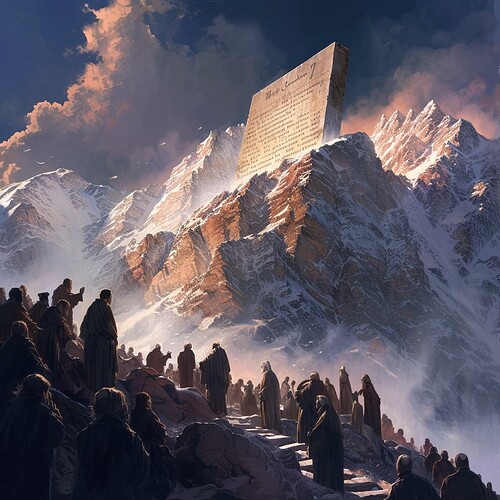 February 10: Psalm 73 - Faith Amidst Life’s Unfairness
February 10: Psalm 73 - Faith Amidst Life’s Unfairness
A Candid Reflection on the Mystery of Divine Providence
 Introduction
Introduction
Embarking on a journey through Psalm 73, we find ourselves empathetically resonating with Asaph, the Psalmist, as he oscillates between despair and faith, wrestling with age-old questions of justice, suffering, and the goodness of God.
 The Enigma of the Wicked’s Prosperity
The Enigma of the Wicked’s Prosperity
Asaph is tormented by the apparent prosperity of the wicked, confessing his bitterness and envy. Without understanding, the world may sometimes seem unjust and unbalanced.
"Surely in vain I have kept my heart pure…For I envied the arrogant when I saw the prosperity of the wicked.” (Psalm 73.13,3)
 A Turning Point in the Sanctuary
A Turning Point in the Sanctuary
Yet, while grappling with these troubling thoughts, Asaph experiences a turning point. He gains a spiritual perspective when he enters the sanctuary of God and realizes the ultimate destiny of the wicked.
“When I tried to understand all this, it troubled me deeply till I entered the sanctuary of God; then I understood their final destiny.” (Psalm 73.16-17)
 Key Themes and Reflections
Key Themes and Reflections
God’s presence: Despite his initial disillusionment, Asaph reaffirms his faith in God’s continual presence and guidance.
Divine perspective: Asaph’s experience in the sanctuary teaches us that the prosperity of the wicked is temporary and illusory, while God’s justice is eternal and real.
 Today’s Application
Today’s Application
Are we sometimes like Asaph, concentrating on worldliness and forgetting divine justice? Psalm 73 encourages us to shift our focus from the earthly towards divine providence.
 Hidden Gem
Hidden Gem
Interestingly, Psalm 73 is the first ‘Psalm of Asaph’, a set of Psalms (73-83) possibly intended to be sung by the Levite musician Asaph and his descendants.
 Reflective Q&A
Reflective Q&A
![]() Why is the prosperity of the wicked troubling?
Why is the prosperity of the wicked troubling?
A: This disparity can be unsettling, as it sometimes appears as if the wicked are rewarded while the righteous suffer. But Psalm 73 reminds us of the ultimate divine justice.
![]() How can we apply the lessons of Psalm 73 in daily life?
How can we apply the lessons of Psalm 73 in daily life?
A: Psalm 73 encourages us to maintain our faith in God’s wisdom and justice, even when life seems unfair.
![]() What does entering the sanctuary symbolize in this context?
What does entering the sanctuary symbolize in this context?
A: The sanctuary represents a space of divine presence and wisdom, providing a spiritual lens to view life’s events, much needed in moments of doubt and despair.
 Join the Discussion
Join the Discussion
Have you ever felt like Asaph, questioning the goodness of God amid difficulty or observing the prosperity of the wicked? Share your experiences and insights. Remember, our doubts and questions can lead us to deeper faith.
